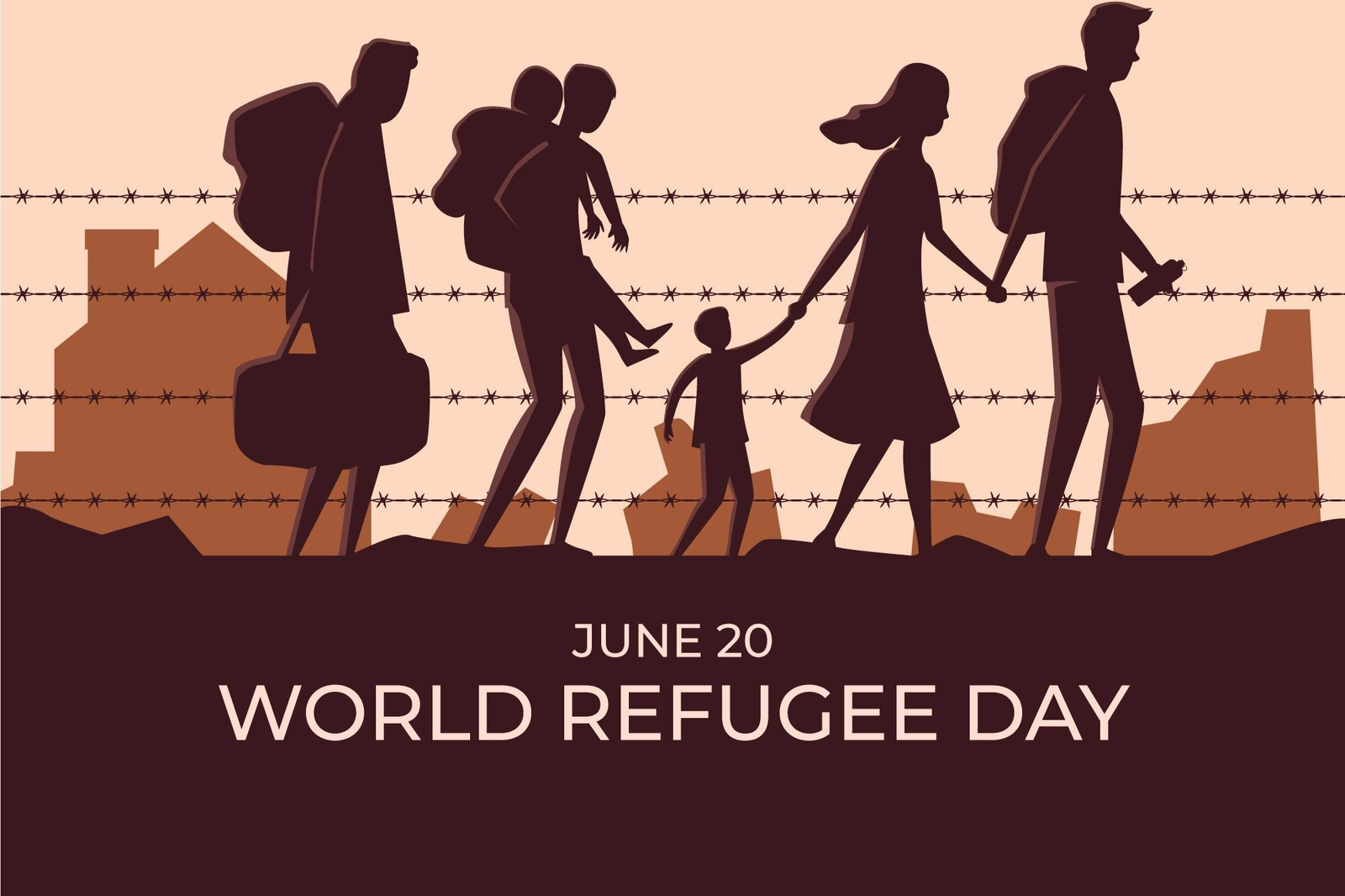Malte reste une destination clé pour les réfugiés et les demandeurs d'asile en raison de sa situation géographique en Méditerranée centrale. En 2024, l'île a dû relever le défi de trouver un équilibre entre ses ressources limitées et l'afflux de migrants arrivant par la mer. Cet article donne un aperçu des nationalités des réfugiés à Malte, du nombre d'arrivées en 2024 et des procédures à suivre pour obtenir un permis de séjour et une protection. Il met également en lumière le système de soutien de Malte et les services disponibles pour les réfugiés.
Réfugiés à Malte - Arrivées et nationalités
En 2024, Malte a enregistré environ 1 200 nouvelles arrivées par la mer, selon les rapports des autorités locales et des ONG. Il s'agit d'une augmentation par rapport aux années précédentes. Parmi les principales nationalités des demandeurs d'asile figurent des personnes originaires du Soudan, de Syrie, d'Érythrée, de Libye et de Somalie, ce qui reflète les conflits et l'instabilité qui règnent dans ces régions. En outre, des Ukrainiens fuyant la guerre qui sévit dans leur pays se sont vu accorder le statut de protection temporaire en vertu des directives de l'UE.
Les statistiques relatives à l'asile révèlent un arriéré préoccupant : Malte n'a traité que 27,9% des demandes pour lesquelles une forme de protection a été accordée en première instance. Le statut de réfugié a été accordé à 1,9% des demandeurs, tandis que la majorité a bénéficié d'une protection subsidiaire (25,3%) ou d'une protection humanitaire.
Demande de résidence en tant que réfugié
Les réfugiés à Malte doivent suivre des procédures spécifiques pour demander une protection internationale et un permis de séjour :
- Arrivée et inscription: À leur arrivée, les demandeurs d'asile sont généralement enregistrés au centre d'accueil initial ou dans des centres de détention. Ils sont soumis à des contrôles de sécurité et à des examens de santé.
- Dépôt des demandes d'asile: Les demandeurs soumettent leurs demandes à l'Agence de protection internationale (API). La procédure consiste à remplir un formulaire détaillant les raisons pour lesquelles ils ont fui leur pays d'origine.
- Entretiens et décisions en matière d'asile: Des entretiens personnels sont menés, bien qu'en 2023, près de 50% des décisions aient été prises sans entretien, une pratique qui soulève des questions d'équité.
- Recours: Si la demande est rejetée, les personnes peuvent faire appel auprès du Tribunal d'appel en matière de protection internationale, mais les décisions prennent souvent plus d'un an.
- Intégration ou protection temporaire: Les demandeurs approuvés reçoivent soit le statut de réfugié, soit la protection subsidiaire, soit le statut humanitaire. Ils peuvent ensuite demander un permis de séjour et accéder aux programmes d'intégration.
Défis pour les réfugiés à Malte
La procédure d'asile à Malte se heurte à des obstacles importants :
- Politiques de détention: De nombreux demandeurs d'asile sont détenus dans des centres de détention dans des conditions difficiles, qui ont été critiquées comme étant "inhumaines". Les groupes vulnérables, y compris les enfants, sont parfois détenus pendant de longues périodes.
- Difficultés d'intégration: Malte a lancé une consultation nationale pour sa deuxième politique nationale d'intégration en 2023, mais les réfugiés sont confrontés à des défis tels que des options de logement limitées, des barrières linguistiques et un accès restreint aux opportunités d'emploi.
- Longs délais de traitement: Les retards dans les décisions d'asile et les appels laissent les réfugiés dans une incertitude prolongée.
Services et possibilités d'emploi
Une fois la protection accordée, les réfugiés à Malte peuvent accéder aux services de base tels que les soins de santé et l'éducation. Ils peuvent également travailler dans des secteurs spécifiques. Les réfugiés trouvent souvent un emploi dans des secteurs tels que la construction, l'hôtellerie, les services de nettoyage et les soins, qui sont confrontés à des pénuries de main-d'œuvre. Des ONG comme l Service jésuite des réfugiés (JRS) et le Croix-Rouge fournir une aide à l'intégration par le biais de formations et de placements professionnels.
Faut-il un permis de travail pour travailler à Malte ?
Les réfugiés et les bénéficiaires d'une protection subsidiaire ou humanitaire à Malte sont autorisés à travailler sans avoir besoin d'un permis de travail. Une fois la protection accordée, ils sont traités sur un pied d'égalité avec les Maltais et les ressortissants de l'UE en termes d'accès au marché du travail. Ils doivent toutefois obtenir un permis de séjour, qui sert de document officiel attestant de leur statut juridique.
La situation est différente pour les demandeurs d'asile dont la demande est encore en suspens. Jobsplus, l'agence publique pour l'emploi de Malte, émet des Licences d'emploi temporaire pour les demandeurs d'asile, qui leur permettent de travailler dans des conditions spécifiques. Ces licences sont assorties de critères stricts, dont une redevance nominale de 1,5 million d'euros. EUR 58Ce système a été critiqué parce qu'il crée des obstacles bureaucratiques supplémentaires et limite l'accès des demandeurs d'asile au marché du travail. Ce système a été critiqué parce qu'il crée des obstacles bureaucratiques supplémentaires et limite l'accès des demandeurs d'asile au marché du travail. Les employeurs doivent vérifier le statut juridique de la personne et la validité de son permis de travail avant de lui proposer un emploi, afin de garantir le respect du droit du travail maltais.
Enfants réfugiés et possibilités d'éducation
L'un des aspects essentiels de l'intégration des familles de réfugiés à Malte est l'accès des enfants à l'éducation. Les mineurs réfugiés ont droit à l'enseignement obligatoire et gratuit, comme les ressortissants maltais. Les écoles fournissent des services de soutien essentiels, notamment des programmes d'apprentissage de la langue pour aider les enfants à surmonter les barrières linguistiques. Cependant, malgré ces efforts, les enfants réfugiés sont souvent confrontés à des défis tels que l'exclusion sociale, un soutien scolaire limité et des difficultés d'adaptation au système éducatif local.
Les organisations non gouvernementales (ONG) et les groupes communautaires contribuent à combler ces lacunes en proposant des programmes éducatifs supplémentaires, des activités extrascolaires et des programmes de tutorat. Ces initiatives sont essentielles pour cultiver un sentiment d'appartenance et donner aux enfants réfugiés les moyens de réussir à l'école, jetant ainsi les bases d'un avenir plus prometteur.
Journée mondiale du réfugié

Journée mondiale du réfugiécélébrée chaque année le 20 juin, rend hommage à la force et à la résilience des réfugiés du monde entier, y compris ceux de Malte. C'est l'occasion de sensibiliser aux défis auxquels ils sont confrontés et de reconnaître leurs contributions à la société. Divers événements, campagnes et activités communautaires sont organisés par des ONG et des entités locales pour promouvoir la solidarité et souligner l'importance des droits et de l'intégration des réfugiés.
Conclusion
Le système d'asile maltais reste confronté à d'importants défis, liés à une forte demande, à des ressources limitées et à des critiques concernant ses procédures. Néanmoins, le pays offre aux réfugiés la possibilité de s'intégrer et de contribuer à la main-d'œuvre, en particulier dans les secteurs connaissant des pénuries de main-d'œuvre. Intégration communautaire souvent menées par des ONG et des organisations locales, contribuent à favoriser les liens sociaux et à promouvoir un sentiment d'appartenance, aidant ainsi les réfugiés à se construire une vie stable et productive.
Pour les personnes et les organisations qui cherchent de l'aide pour obtenir un permis de séjour ou de travail, Expatax.mt offre des services de conseil pour s'y retrouver dans la bureaucratie complexe de Malte.
Lire la suite
JobsPlus Licences d'emploi à Malte : Un guide complet
Résidence à long terme : Un guide simple pour s'installer durablement à Malte







